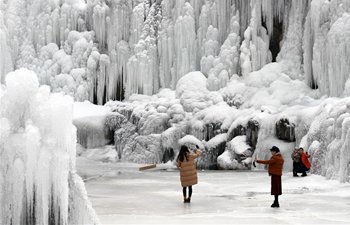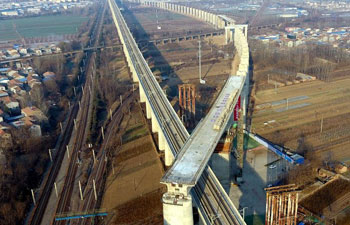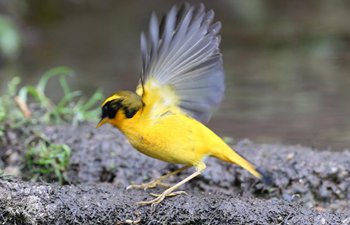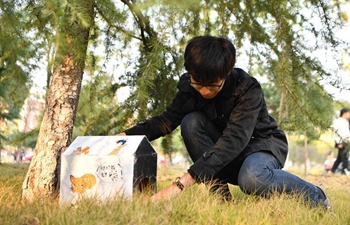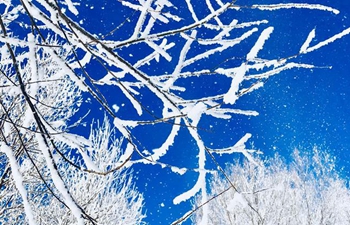VANCOUVER, Dec. 19 (Xinhua) -- The government of the Canadian province of British Columbia (B.C.) has decided to immediately end the hunting of grizzly bears throughout the province.
Under the new rules, which were made Monday and took effect immediately, it is illegal to hunt grizzlies for sport, or when an animal is killed for its parts and not its meat.
Hunting grizzlies for their meat is still permitted outside of the coastal region known as the Great Bear Rainforest.
"It is abundantly clear that the grizzly hunt is not in line with (British Columbia's) values," said Doug Donaldson, B.C.'s minister of forests, lands and natural resources.
George Heyman, the province's minister of environment and climate change strategy, said "our government is committed to improving wildlife management in B.C., and today's announcement, along with a focused grizzly bear management plan, are the first steps in protecting one of our most iconic species."
In August, the government announced that it would end trophy hunting of grizzly bears at the conclusion of the 2017 grizzly bear hunt on Nov. 30, and stop all hunting of grizzly bears in the Great Bear Rainforest. There are an estimated 15,000 grizzly bears in British Columbia.
"We also want to promote the healthy grizzly bear viewing economy in B.C. and give everyone the tremendous opportunity to see these incredible animals in their natural habitat," Heyman said in a news release.
First Nations, who are the predominant Aboriginal peoples of Canada south of the Arctic, will still be able to harvest grizzly bears for food and for social and ceremonial reasons based on existing treaty rights, the government said.
The ban on grizzly hunting, however, fails to address the destruction of grizzly habitat in B.C. -- the predominant threat to the species, said Adam Ford, Canada research chair in wildlife restoration ecology at the University of British Columbia.
He said the hunting ban is clearly a popular move, but a recent report by B.C.'s own Auditor General on grizzlies concluded that habitat loss has the largest impact on grizzly bear death rates.
The Guide Outfitters Association of B.C. also has argued that the greatest threat to grizzly bears is not hunting, but human activities that degrade the grizzly bear habitat.
Ian McAllister, the executive director and co-founder of Pacific Wild, a non-profit wildlife advocacy organization based in B.C., said "there are also significant concerns around global warming and climate change affecting the diet of grizzly bears, including a lack of salmon and changing vegetation types."






